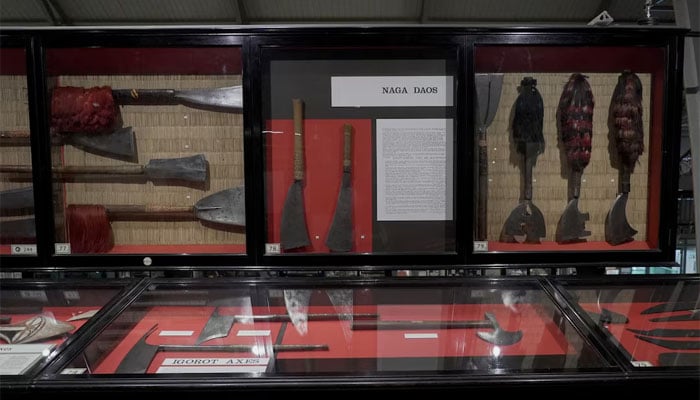Select Language:
Delegates from various tribes in Nagaland, India, convened at a museum in the UK to negotiate the return of ancestral remains that were taken during the colonial period and have been on display for many years.
During that time, numerous skulls and body parts were shipped from regions like Asia and Africa to Britain and other colonial nations, often regarded as “trophies” for trade, display, or research purposes.
A global movement is gaining momentum, advocating for the return of such remains, along with seized artworks, as part of ongoing efforts to address historical injustices linked to colonialism and slavery.
Just last month, 19 skulls of African Americans were repatriated from Germany to New Orleans, where they had been sent for study under phrenology—a now-debunked theory suggesting that head shape could indicate mental abilities and character traits, particularly among different ethnic groups.
Historians reveal that many of these remains were excavated by colonial officers from burial sites and battlegrounds in Nagaland, where headhunting had been a prevalent customary practice for centuries. Others were obtained through violent means.
The Pitt Rivers Museum, part of Oxford University, boasts the largest collection of Naga artifacts in the world, which includes thousands of items, 41 human remains (mainly skulls), and 178 objects that may contain human hair.
In 2020, the museum ceased public display of all remains, including those belonging to Dolly Kikon’s ancestors. Kikon, an anthropologist from the Lotha-Naga tribe, now teaches at the University of California and visited Oxford last week.
“For the first time, we have a Naga delegation at the museum to connect and reclaim our history, culture, and heritage,” Kikon, 49, shared with Reuters.
The museum’s director, Laura Van Broekhoven, noted that the timeline for returning the remains remains uncertain due to bureaucratic processes. They are also in discussions with additional groups to facilitate further repatriations.
The 23 representatives from various Naga tribes reiterated their appeal for the British government to legislate protections for ancestral remains, in solidarity with calls from lawmakers and activists.
Some European nations, such as the Netherlands, have established national policies aimed at repatriating human remains.
Critics of reparations argue that present-day entities shouldn’t be held liable for historical injustices. Proponents insist that addressing these legacies is crucial to combating systemic and structural racism.
“One way for indigenous peoples to confront the colonial legacy is by being empowered to tell our own stories,” Kikon emphasized.



